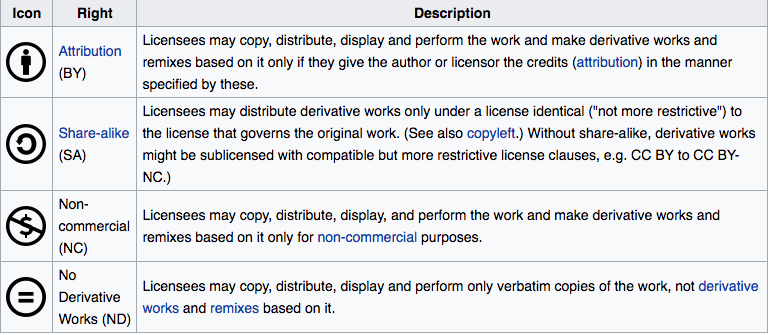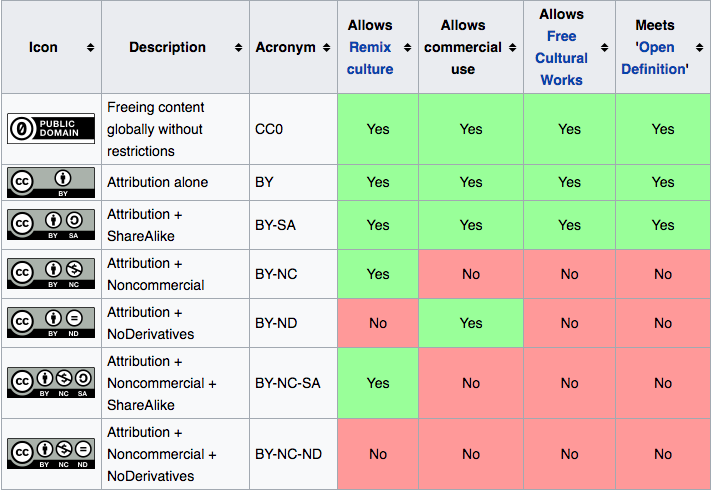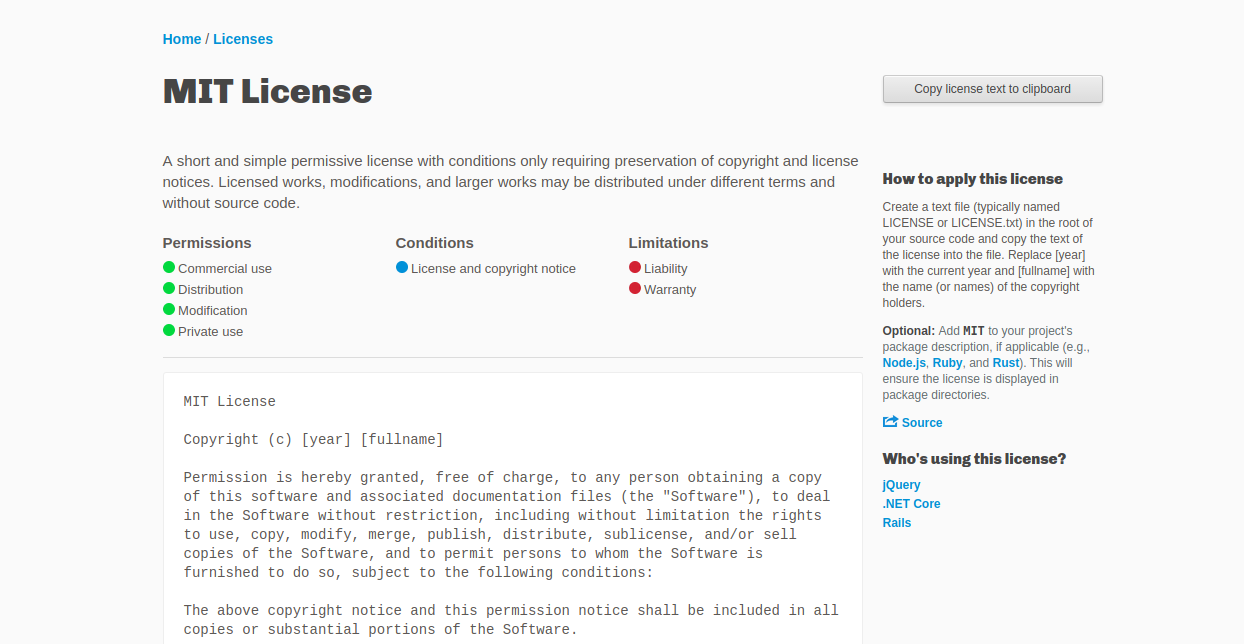Fab Academy Tutorials & References
Assignment
- Develop a plan for dissemination of your final project
- Prepare a summary slide (presentation.png, 1280x1024) and video clip (presentation.mp4, 1080p HTML5, < ~minute, < ~10 MB) in your root directory
Content
Creative Commons License
A Creative Commons (CC) license is one of several public copyright licenses that enable the free distribution of an otherwise copyrighted work. A CC license is used when an author wants to give people the right to share, use, and build upon a work that he/she has created. CC provides an author flexibility (for example, he/she might choose to allow only non-commercial uses of his/her own work) and protects the people who use or redistribute an author's work from concerns of copyright infringement as long as they abide by the conditions that are specified in the license by which the author distributes the work.
There are several types of CC licenses. The licenses differ by several combinations that condition the terms of distribution. They were initially released on December 16, 2002 by Creative Commons, a U.S. non-profit corporation founded in 2001. There have also been five versions of the suite of licenses, numbered 1.0 through 4.0. As of 2016, the 4.0 license suite is the most current.


Process https://creativecommons.org/choose/ click on it.

Select Feature of License >

Select type of license

You want to show your Copyright License then Copy the script and paste it. Below is the output of Script

This work is licensed under a Creative Commons Attribution 4.0 International License.
MIT License
A short and simple permissive license with conditions only requiring preservation of copyright and license notices. Licensed works, modifications, and larger works may be distributed under different terms and without source code.
How to apply this license?
Go to MIT License | Choose a License page. Follow instructions as mentioned below.
Create a text file (typically named LICENSE or LICENSE.txt) in the root of your source code and copy the text of the license into the file. Replace [year] with the current year and [fullname] with the name (or names) of the copyright holders.

(Following license has been loaded from LICENSE.txt)
Output

This work is licensed under a Creative Commons Attribution 4.0 International License.
- Link to MIT License
- Link to Final Project : Click here